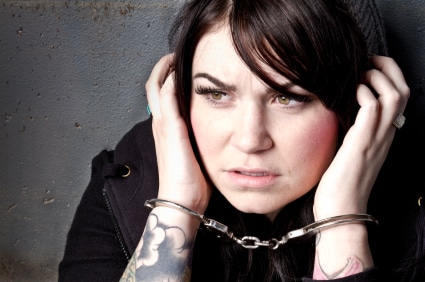
Compared to 2008, the majority (66%) of girl-specific data trends in Florida showed insufficient or no progress. While it is commendable that arrests of girls have dropped 66 percent and incarceration has dropped 67 % from 2008 to 2019, areas of continued concern include civil citation utilization, reducing school arrests, and reducing lockups for technical violations of parole (16%). In addition, the overrepresentation of girls of color remains consistent. For example, Black girls make up only 21% of Florida girls ages 10 – 17 yet account for 45% of arrests, 45% of incarcerations and 52% of transfers to adult court.
Disturbingly, girls also receive harsher treatment for less serious offenses than boys. Two-thirds (66%) of girls are arrested for non-felonies (38% for boys). Two-fifths (40%) of girls are locked up for non-felonies (18% for boys).
The 2022 Justice for Girls Blueprint: The Way Forward for Florida outlines strategies over the next five years to stop the revolving door of juvenile justice involvement for girls and young women. The findings are relevant to bringing forth the overdue justice reforms needed to support the wellbeing of girls and young women.
According to the report, it is critical for decision makers to understand how girls’ exposure to trauma and violence impacts their behaviors and results in system involvements rather than community-based services. Too often, instead of addressing the trauma, the system’s response causes further harm and derails girls’ futures. A girl-centered approach called for in this Blueprint ensures that girls’ lived experiences (of safety, interactions/treatment by adults, traumatic experiences) guide policy, services, and interventions in strong partnership with decision makers, stakeholders, and communities.
Some key solutions offered in the Blueprint include:
- Increase the minimum age limit for arrest. Florida’s current law protects children up to age 7. Amend Section 985.031, Florida Statutes, the Kaia Rolle Act to set age limitations to 12 and younger for delinquency arrest unless forcible felony as defined in s. 776.08
- Mandate that all counties implement a civil citation or alternative to arrest program by amending Florida statute 985.12. In 2020-2021 nearly 4,000 girls had contact with law enforcement. Although all were eligible for a civil citation, two in five (41 percent) were arrested. Arrests of civil citation eligible girls varied by whether girls were in school or in the community. One in three girls in lock-up (31%) report physical abuse in their home on the DJJ Positive Achievement Change Tool (PACT) assessment. Because police officers are trained to remove someone from the home when they see the situation from a domestic violence lens, detention is often over-used as a de-escalation response or respite for girls who are eligible for diversion programs, including civil citations. In 2020–2021, over 1,000 girls who were eligible for a civil citation came in contact with law enforcement for a family disturbance, where law enforcement responded to a domestic related incident (e.g., fighting with a family member). Rather than being diverted from the system, over 700 girls were arrested unnecessarily in Florida.
- Invest in a girl-centered, community-based continuum of care. The enactment of Juvenile Justice Statute 985.02 outlined the intent of the Florida Legislature to provide effective treatment to address physical, social, and emotional needs, regardless of geographical location. Further, this statute included provisions for trauma-informed, gender-specific programming and services. Despite this far-sighted mandate, the changes have not occurred. The Legislature should revisit this mandate along with Florida Department of Juvenile Justice and the Department of Children and Families to more fully implement it.
Click here to access the Justice for Girls Blueprint report to see the full list of recommendations.
Dr. Vicky Basra, Delores Barr Weaver Policy Center CEO says, “The Policy Center’s latest Blueprint report not only shines the light on actions to be taken by policymakers in every Florida community for ensuring the safety and future success of girls, but also engages the girls themselves. This is best accomplished by continuing reforms that shift Florida’s juvenile justice system to a healing and restorative model, one that truly sees girls for their potential, not present circumstances. When we invest in that, we can change families, schools, and communities for the better.”
According to Roy Miller, president of American Children’s Campaign, improving the lives of Florida’s girls has a positive ripple effect that expands far beyond girls and their families. “Through policy and practice reforms that divert girls from justice system involvement, we not only save the state money, but also prevent harm to future generations, improving the social environment for all,” he stated.
About Delores Barr Weaver Policy Center
Established in 2013, the Delores Barr Weaver Policy Center, a not-for-profit 501 (c) 3 is the outgrowth of the Justice for Girls Movement. The mission is to engage communities, organizations, and individuals through quality research, advocacy, training and model programming to advance the rights of girls and young women and youth who identify as female, especially those impacted by the justice system.
About American Children’s Campaign
Founded in 1992, American Children’s Campaign is a non-partisan, nonprofit organization that initiates systemic reform for Florida’s children through responsive public education campaigns and responsible public policy. The organization in partnership with the Delores Barr Weaver Policy Center, has co-led the Justice for Girls Movement, which has achieved significant system reforms over the past two decades.
